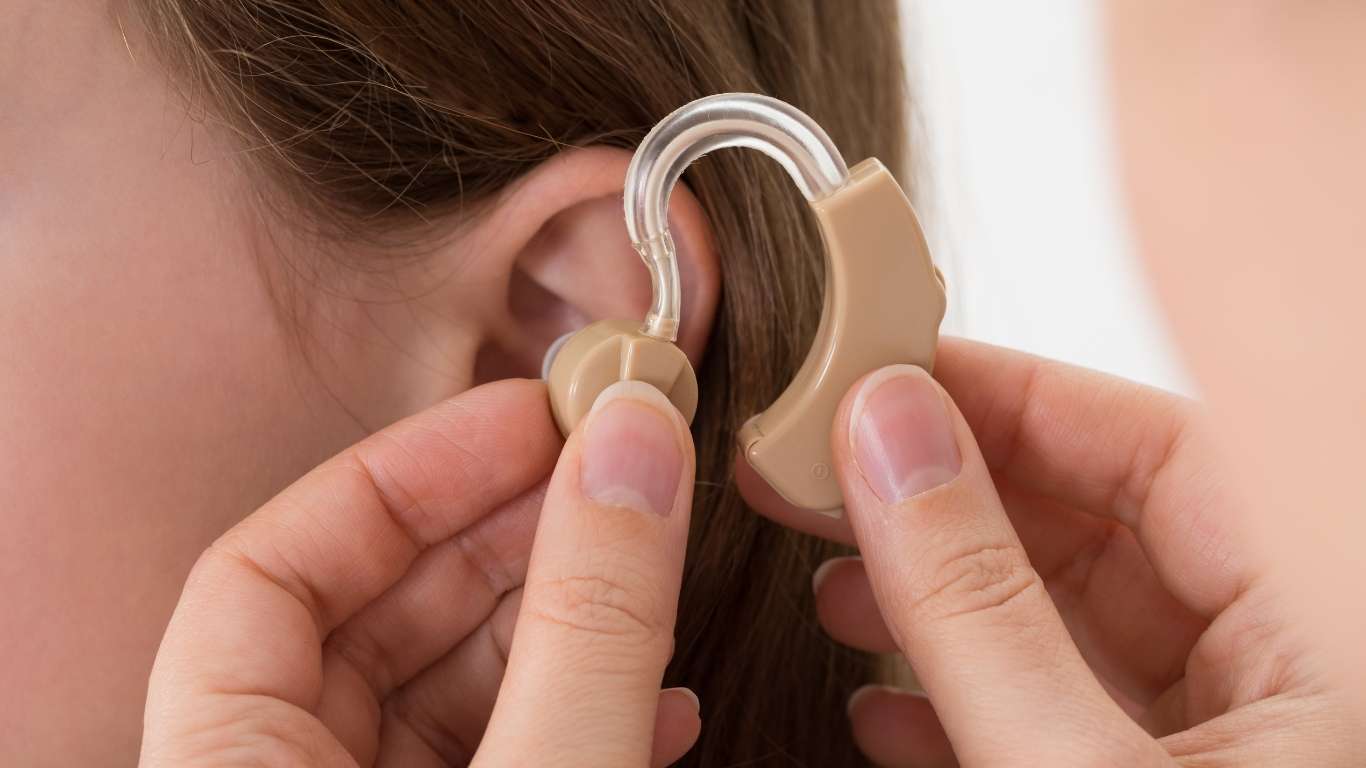Hearing impairment is one of the most common issues that many people suffer worldwide. Many people think it’s due to their age, but that’s not the only reason that leads to hearing loss.
However, to aid people with hearing loss, both hearing aids and cochlear implants are used depending on the type of hearing impairment. Both hearing devices and cochlear implants are small devices that aid patients with hearing difficulties.
So, hearing aid vs cochlear implant, which one should you pick? To help you know the differences, our experts have done thorough research on them. Keep reading until the end to have a clear idea of these two devices.

What is Cochlear Implant?
Cochlear implants are those small devices that are surgically implanted beneath the ear skin, with electrode arrays or strings placed in the cochlea.
Surgeons fit all these by drilling the skull to attach the implant. Although the entire procedure might seem painful and risky, it's not. When an experienced surgeon carries out the surgery, the process is relatively quick.
These devices bypass the inner ear to activate the auditory nerve, providing a sound experience directly.
Cochlear implants are only for sensorineural hearing loss. Hearing impairment is caused by injury to inner ear hair cells or the vestibulocochlear nerve. Diabetes, head injuries, and noise-induced hearing loss are significant causes of sensorineural hearing loss.
People with severe hearing impairment can use hybrid cochlear implants. These hybrid gadgets can assist speech recognition in crowded areas.
The transmitter and the receiver pick the sound and process it into electric impulses. It's then sent to your auditory nerve with the help of an electrode array.

What are Hearing Aids?
Inner ear sensory cells, also called hair cells, can be damaged, causing hearing loss. Congenital anomalies, aging, and physical damage all can cause hearing loss.
The loss of hearing cells can result in mild, moderate, or even severe hearing loss.
Hearing aids are small electrical devices worn behind or within the ear. It enhances sounds to trigger hair cells better, making hearing simpler.
Hearing aids consist of three main parts:
The microphone takes the sound, amplifies it, and delivers it to the ear canal via the speaker.

Hearing Aids Vs. Cochlear Implants
One of the significant differences between cochlear implants and hearing aids is that hearing devices are easily removed. Cochlear implants are attached permanently. Most cochlear implant surgeries are outpatient. Children and those with health conditions require inpatient surgery.
Hearing devices are best for mild-to-moderate hearing loss, while cochlear implants are best for profound hearing loss. Moreover, hearing devices amplify the sounds whereas, cochlear provides a sense of the sound.
Cochlear implants send signals to the auditory nerve that the brain processes and identifies as sound. They have distinct frequencies, and the users may encounter issues with hearing strange noises and sounds due to the magnetic fields.
According to experts and researchers, cochlear implants may benefit infants under 18 months with severe hearing loss. A study found that early implantations on infants helped them develop language and interpret speech.
After a cochlear implant, people will always require some extra assistance. They might require the help of an audiologist and pathologist for speech and language understanding.
The FDA regulates both cochlear implants and hearing aids as medical devices. However, it's always recommended to consult with a licensed audiologist before choosing any of these devices to aid your hearing issue.
However, most health insurance policies do not cover hearing aids, and cochlear implants cannot be bought online. To find out if you qualify for these devices, you need to set up an appointment with an audiologist first, and if they think you are suitable for the surgery, they'll proceed further.
If you are not sure which one would be the best option for you, then an audiologist might assist you in choosing the best option for your case.
How Do You Know Which One to Choose?
Cochlear implants and hearing aids are medical devices, and a certified doctor or audiologist can recommend the best option for you based on the following criteria.
Choosing a cochlear implant or hearing device after an audiologist's suggestion involves different criteria.
When buying a hearing aid, you should look for:
When looking for a cochlear implant, you should look for:
New cochlear implant users should also look into support groups and rehabilitation that can help them to adjust to their device.
Looking After Your Ear is Important
Many people aren't aware that dirt can clog your ears and cause hearing impairment.
As your ears are visible to the outside environment, extra care is required to keep your ears in shape. Irregular ear cleaning can also lead to odor, which can be pretty embarrassing.
Below are some of the hygiene recommendations from our experts for better and improved ear care:
Certain Conditions and High-Dose Medications Can Also Result in Ear Infections.
Certain conditions can cause hearing impairment. Most of our body parts are synchronized, so other body areas may also get affected if one area is affected.
High-powered drugs or medications may also contribute to hearing impairment. So, ensure that the medications you consume don't adversely affect your hearing.
Other Reasons for Hearing Impairment
Hearing impairment can occur due to numerous circumstances, and high-pitched sound can be one of the reasons. Intense sound can cause severe issues on our ears, and it can even result in severe or permanent hearing impairment. Therefore, our experts always recommend using hearing protection, especially in concerts or noisy areas.
Nano Hearing Aids
If you are on the lookout for hearing aids, you can’t go wrong with Nano Hearing Aids. They are, simply put, one of the best hearing aid manufacturers in existence. The best thing about Nano Hearing Aids is that they are able to provide supreme quality hearing aids at only a fraction of the price of other similar quality hearing aids.
The question then naturally arises, how is Nano able to provide such quality at such low prices? Well, it has to do with their business model. Most hearing aid manufacturers will never interact directly with their customers. Nano, however, is completely different. They are able to provide such high quality devices at affordable prices only because they cut out the middleman completely.
The Bottom Lines
If you think you will benefit from getting yourself a pair of hearing aids, we cannot recommend Nano strongly enough. It has absolutely everything you would want in your hearing aid and is also a lot more affordable than most devices of similar quality.


